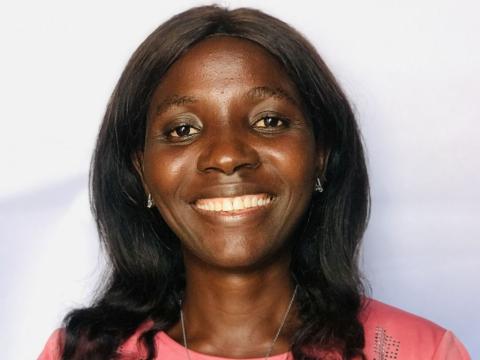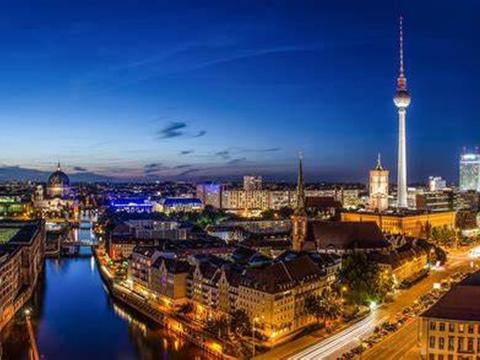By Mabinty M. Kamara
As the plane made its final approach into Berlin, it was clear from thousands of feet in the air that I was now in a completely different part of our beautiful planet. I have traveled widely in Africa, but this was my first visit to Europe.
A gentle winter breeze blew as I moved my eyes from side to side watching the stunning architecture that graces the Berlin skyline. It felt extremely cold for this first-timer and for a moment, I started trying to empathize with one of our great footballers, Musa Tombo, who, according to reports, abandoned reasonably lucrative contracts in Scandinavia because it was too cold there.
I will be in Germany for just a week and I encouraged myself to believe that I will be fine. There are thousands of Sierra Leoneans in this country, I thought. In fact, they’ve been here for years and there are thousands more on their way, joined by our African brothers and sisters to turn the Mediterranean Sea into a graveyard. Some are getting through and fighting deportation. I will soon re-join Musa Tombo to enjoy our harmattan wind in Freetown at this time of year.
Anyway, here I am here, in the great city that I have read a thing or two about in the days leading up to this visit. I have just one week to learn how to help tackle some of the biggest challenges facing humanity today.
As disruption in the information ecosystem across the world heightens, like with the devastating effects of Climate Change that the world continues to grapple with, world leaders are beginning to consider it a serious threat to peace and stability. Hence, conscious efforts are being made to minimize its effects through media literacy campaigns and programs.
As a passionate media and communication professional, with consideration for Accuracy, Balance and Credibility in information dissemination, the disruption in the information ecosystem frightened me, prompting me into action to minimize its potential threat to my country Sierra Leone and the world at large. Having that in mind, I quickly took advantage of training opportunities in that regard from regional experts and other development partners including the Americans and the Europeans, making me a certified fact-checker.
This for me has been the highlight of my journalistic practice so far, taking me to places and meeting people in search of more knowledge, techniques and tools to solve the puzzles of fake news.
In the latest of such trips, I joined 17 other Journalists and fact checkers across East, West and Southern Africa for a weeklong visitor’s program on Disinformation in Germany. This was my first trip to Europe on the recommendation of the German embassy in Freetown.
The program, hosted by the government of the Federal Republic of Germany through its implanting agency, the Goethe Institute was held from November 10 to 16, this year and it was a blend of education, inspiration, discovery and fun. All in just a week!
During the visit to Berlin and Bonn, participants were exposed to different initiatives implemented in different countries including some parts of Africa aimed at curbing disinformation and fake news. One such initiative implemented by a German organization dubbed Lie Detectors is to increase Media literacy and fact checking skills among school children and teachers through workshops held in schools across Germany.
We were also taken through the European Union Digital Service Act, a law that covers intermediary and hosting services, online platforms, and search engines, noting that the obligations of the mentioned providers vary depending on their role, size and impact on the online environment. According to the presenter the law is aimed at fighting against disruption caused by illegal online content, adverse effects on the exercise of fundamental rights on the protection of minors, on social debate and electoral processes, gender-based violence and other social risks with an underlying principle that what is illegal offline is illegal online.
It was a learning and sharing process where we shared our experiences about what obtains in the regulation of the digital space in our respective countries, expressing fear that such laws when introduced in most African countries will be used in favor of politicians and their allies as against the people.
Artificial Intelligence (AI), the new information missile, was at the center of our discussions. At radio Deutsche Welle’s (DW), fact-checking experts, Joscha Weber tutored us on the latest trends in the use of AI to distort information and also tools to spot such contents created by artificial intelligence to identify clone voices, manipulated videos, and images, highlighting TrueMedia as a useful tool.
At the Federal Foreign office in Berlin, discussions around foreign interference in the disinformation and propaganda on other countries were held followed by the bilateral relationships between Germany and the various African countries and their contributions to the development of a free and independent media in Africa.
The need for digital migration by the mainstream media to match the demands of their audiences and readers came out strongly during discussions around the sustainability of the media, especially the print media.
One of the leading newspapers in Germany Taz has already announced a migration from print to online at the end of this year. What inspired me most was the German government’s contribution to Africa in the fight against disinformation through various initiatives.
Together with the other participants from Ghana, Nigeria, South Africa, Namibia, Mozambique, South Sudan, Malawi, Namibia, Tanzania, Uganda, Zambia, Zimbabwe, and Ethiopia we had an inspiring boat ride on the river spree in the Political heart of Berlin. The approximately 400-meter-long river is sandwiched by historic and important political offices and institutions and our tour guide kept highlighting them.
One thing that I will always remember from my few days in Germany is the extent to which they have gone to preserve their history. On our side of the world, it has been more than a challenge because some of our prized artifacts are only now being gradually returned from some European countries. Our cultural heritage is stuck on shelves in the Humbert Forum and other Western museums in the name of preservation, attracting revenues from tourism. Meanwhile, at home, the lack of resources, commitment and knowledge is preventing us from taking care of what we have.
In just one truly eventful week, I was able to learn so much about Germany beyond the stories of Adolf Hitler and the 2nd World War. I must highlight the following: there was that boat ride, the dishes, the five-hour train ride from Berlin to Wuppertal; the Sky train city via bus to Bonn, sightseeing at the Humbert Forum among others. Of course, there was that classical music concert at the Beethoven house in Bonn. The concert was done to the memory of the great German classical music composer and pianist, Ludwig Van Beethoven whose works remain ever glaring in the city of Bonn.
The performance that night was truly magical – an exquisite display of German culture exemplified in that classical music concert capable of sending anyone to dreamland.
If I should visit Bonn again, I will surely return to the Beethoven house, not forgetting HARIBO, my favorite candy chain store.
Anyway, talking about fact checking, don’t forget not to share it until you are sure it is true.
© Copyright (2024) Politico (23/12/24)









